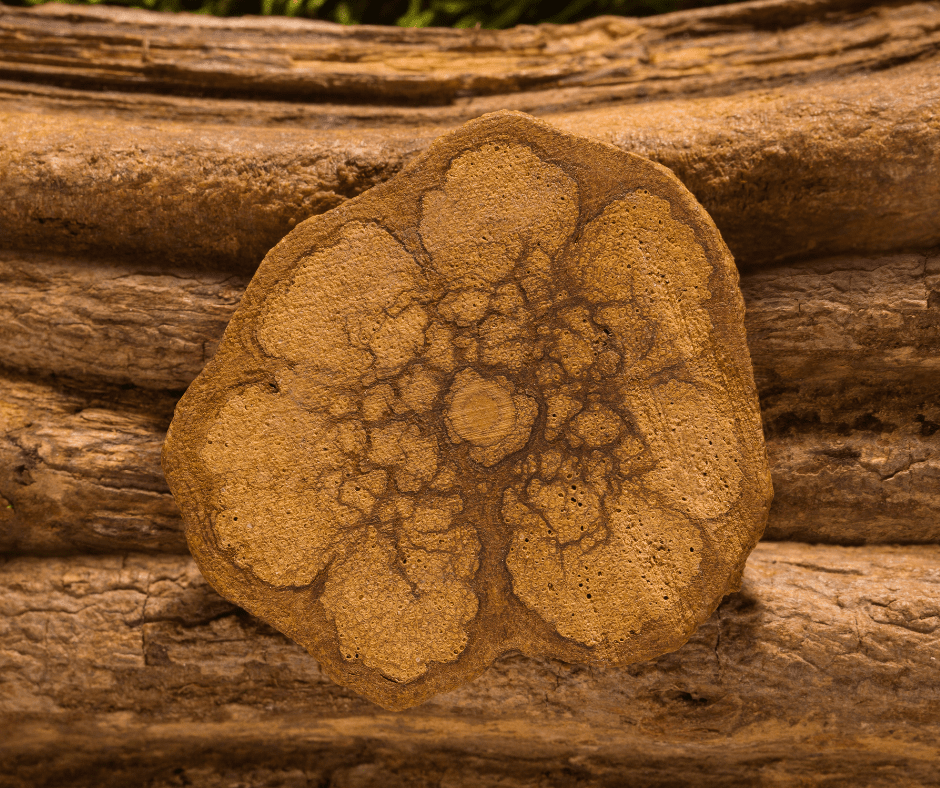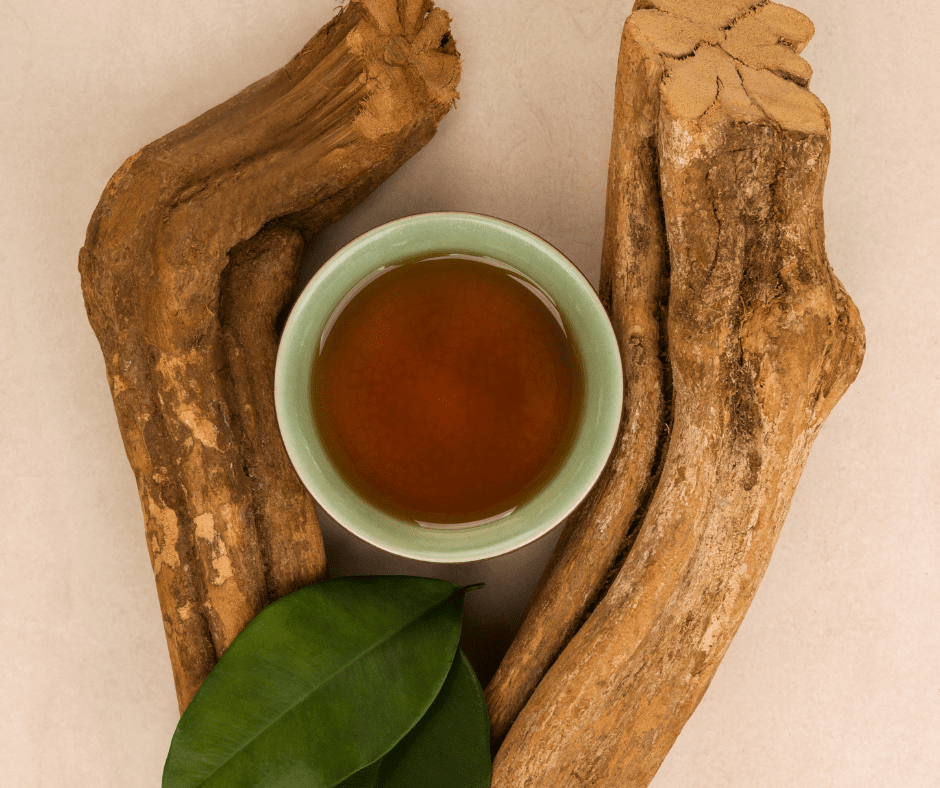Ayahuasca, a traditional Amazonian brew, has been gaining attention not just for its spiritual properties but also for its profound impact on the brain. This article delves into the scientific research exploring how Ayahuasca affects neurological functions, mental health, and cognitive abilities.
Key Takeaway:
- Ayahuasca alters neurotransmitters in the brain, leading to altered states of consciousness and enhanced neuroplasticity.
- The consumption of Ayahuasca has mental health benefits, including stress relief, improved mood, and increased insight and self-discovery.
- While there are risks and potential side effects associated with Ayahuasca use, making an informed decision based on a comprehensive understanding of its effects can help balance the benefits and risks.
Ayahuasca, a traditional Amazonian brew, has been the subject of numerous scientific studies aiming to understand its effects on the brain. But what do these studies really tell us? Let’s break down the jargon and look at the findings in simple terms.
What Happens in the First Hour?
According to research by Schenberg et al., about 50 minutes after taking ayahuasca, there’s a decrease in a specific type of brainwave activity, mainly in the back-left part of your brain. This is the area that plays a role in visual processing and spatial awareness.
What About Later On?
Between 75 to 125 minutes after ingestion, the same study found an increase in another type of brainwave activity in various parts of the brain, including the front and back. These changes are thought to be related to how we process sensory information.
Enhanced Visual Imagery
Another study found that ayahuasca enhances visual imagery, particularly when your eyes are closed. This is linked to increased activity in a specific frequency band that’s often associated with consciousness. Book An Ayahuasca Retreat Ayahuasca Is A plant-based medicine that may have side effects. Make sure and do independent research before attending a retreat.
What About Other Frequencies?
Confirming these findings, Stuckey reported similar changes in other frequency bands that are linked to how we process multiple senses at the same time. This could explain the intense sensory experiences, like synesthesia, that people report during an ayahuasca journey.
Decreases in Other Areas
Valle et al. found that ayahuasca also leads to decreases in other types of brainwave activity, particularly in the back and sides of your brain. These decreases were found to be related to the intensity of the visual experiences people had.

Brain Activity and Its Transformations under Ayahuasca
Brain activity and its transformations under Ayahuasca are an intriguing area of study that has been gaining more attention in recent years. Ayahuasca is a powerful plant-based psychedelic that induces profound alterations in consciousness, perception, and emotion. However, the mechanism through which it works on the brain remains a mystery.
Ayahuasca contains DMT (dimethyltryptamine), a potent psychedelic compound that affects several neurotransmitter systems in the brain, including serotonin and dopamine. The brew also contains MAO inhibitors (MAOIs) that inhibit the breakdown of DMT, allowing it to be active when consumed orally. These two components work together to induce a unique state of consciousness with potent effects on brain activity.
Research has suggested that ayahuasca’s impact on brain activity may involve changes in the default mode network (DMN), a network of brain regions associated with self-referential thinking and mind wandering. Studies have shown reduced activity in the DMN during ayahuasca use, leading to increased introspection and self-reflection. Additionally, ayahuasca has been found to increase connectivity between certain brain regions, leading to greater integration of neural networks.
Ayahuasca has also been linked to neurogenesis, or the creation of new neurons in the brain. Animal studies have shown that DMT can stimulate neurogenesis in certain areas of the brain, although more research is needed to determine if this effect translates to humans.
Pro Tip: If you’re interested in trying Ayahuasca for its potential benefits on your brain, make sure to do so with an experienced guide who can help ensure a safe and supportive environment.
Neuroplasticity – A Key Aspect to Ayahuasca’s Impact on Your Brain: Have you ever considered how your brain changes over time? Well, research shows that our brains are constantly evolving due to neuroplasticity – our ability to form new neural connections based on experiences and environmental factors. Ayahuasca may harness this principle to induce long-lasting changes in the brain that can lead to improved mental health and well-being.
Neuroplasticity – A Key Aspect to Ayahuasca’s Impact on Your Brain
Have you ever heard of neuroplasticity? In the context of Ayahuasca’s impact on your brain, it is an important aspect that cannot be ignored. Neuroplasticity essentially refers to the brain’s ability to adapt and change in response to different experiences and stimuli. This phenomenon plays a key role in how Ayahuasca affects your brain.
Ayahuasca has been used for centuries in various cultures for its medicinal properties. When consumed, Ayahuasca triggers a significant increase in neural activity, which leads to increased neuroplasticity. This means that the brain becomes more flexible and malleable, allowing for new connections between neurons to be formed.
One reason behind Ayahuasca’s impact on neuroplasticity is its active ingredient DMT. This compound is known to stimulate the release of neurotransmitters such as serotonin and dopamine, which are crucial for regulating mood, emotions and perceptions. Additionally, studies have shown that Ayahuasca can increase the production of a protein called “brain-derived neurotrophic factor” (BDNF), which promotes the growth and strengthening of brain cells.
Interestingly, not all psychedelics have the same effect on neuroplasticity. Ayahuasca seems to be unique in this regard due to its complex chemical composition. The combination of various components such as DMT, harmine and harmaline may be responsible for this effect.

If you are looking to experience the benefits of increased neuroplasticity through Ayahuasca use, there are some things you can consider doing beforehand. For example, engaging in activities that challenge your brain like learning a new skill or practicing mindfulness can help prepare your mind for increased plasticity. Additionally, taking care of your physical health through exercise and nutrition can also support optimal brain function.
Mental Health Advantages: An Ayahuasca-Induced Transformation
As I immersed myself in the world of ayahuasca, one transformation stood out among the rest: the profound effect it had on my mental health. In this section, I’ll be sharing my personal exploration of Ayahuasca’s mental health benefits. I’ll dive into its ability to alleviate stress and depression, and how it’s improved my mood and overall well-being. Additionally, I’ll be discussing how Ayahuasca has heightened my self-awareness and given me greater clarity into my life’s path. Join me, as we delve into the transformational world of Ayahuasca, and unlock the mental health benefits it has to offer.
Ayahuasca’s Ability to Alleviate Stress
During the times of stress, it is natural to look for ways to alleviate mental tension. While there are many different approaches to tackling stressful situations, one substance that has been garnering attention in recent years for its potential is Ayahuasca.
Ayahuasca’s ability to alleviate stress lies in the way it interacts with our brain. The plant-based mixture contains an active ingredient called DMT or N,N-Dimethyltryptamine that alters serotonin production in our brains, leading to a heightened emotional state and sometimes even hallucinations. This interaction allows individuals to confront their inner anxieties and fears, providing them with relief from stress and anxiety.
Research has also found that Ayahuasca can lead to lasting improvements in mental health, with participants experiencing reduced symptoms of depression and anxiety even months after taking the substance. A study conducted by the Federal University of Rio Grande do Norte found that volunteers who consumed Ayahuasca had significant decreases in dysfunctional attitudes and depressive symptoms when compared with a control group.
Improved Mood – A Beneficial Outcome of Ayahuasca Use
Improved Mood – A Beneficial Outcome of Ayahuasca Use
Ayahuasca is a substance that has garnered attention for its potential therapeutic effects on mental health problems like anxiety, depression, and addiction. At its core, ayahuasca is a natural psychedelic brew made out of the Ayahuasca vine (Banisteriopsis caapi) and other plants that have medicinal properties. Among its many potential benefits, an improved mood stands out as one of the most significant advantages.
Improved mood is a beneficial outcome of ayahuasca use for several reasons. First, ayahuasca contains DMT, a powerful psychedelic compound with a profound impact on human consciousness. When consumed, DMT stimulates serotonin receptors in the brain, leading to enhanced emotional and psychological states. Furthermore, ayahuasca interacts with users’ neural pathways and causes changes in the prefrontal cortex region associated with emotional regulation.

Recent studies from NCBI suggest that improved mood and therapuetic effects can take place as a result of ayahuasca consumption and its effect on the endocrine system. Ayahuasca enhances the body’s release of certain hormones like cortisol, which leads to reduced symptoms of stress and depression. Additionally, it boosts immunity by regulating cortisol levels through stimulating alpha-2A adrenoceptors affecting multiple organ systems.
Ayahuasca use can lead to significant improvements in emotional well-being as it evokes feelings of blissfulness while reducing negative thoughts or feelings such as sadness or anxiety. Another lesser-known benefit is that it may help individuals gain clarity about their life goals or create more positive outlooks on life moving forward; this material is useful because users can contemplate experiences from different perspectives that facilitated deeper insight into personal issues enabling higher levels of self-awareness.
The Big Picture
Alonso et al. took a broader look and found that ayahuasca changes the way different parts of the brain communicate with each other. Specifically, the front of the brain becomes less dominant, allowing the back of the brain to have more influence. This shift is thought to disrupt the usual top-down control in the brain, allowing for a more bottom-up flow of information.
What Does This Mean for You?
These changes in brain activity could be behind the intense emotional and visual experiences people report during an ayahuasca journey. However, it’s important to note that research in this area is still ongoing, and there’s much more to learn about how ayahuasca affects the brain.
Five Facts About How Ayahuasca Affects Your Brain:
- ✅ Ayahuasca contains DMT, a powerful psychedelic compound that activates serotonin receptors in the brain. (Source: Tuck.com)
- ✅ Ayahuasca has been shown to increase neural connectivity in the brain, potentially leading to enhanced creativity and problem-solving abilities. (Source: Scientific American)
- ✅ Ayahuasca can induce powerful spiritual experiences, often described as feeling connected to a higher power or universal consciousness. (Source: Medical News Today)
- ✅ Ayahuasca has been used in traditional Amazonian medicine for centuries to treat various physical and mental ailments, including depression and addiction. (Source: The Third Wave)
- ✅ The effects of ayahuasca can last several hours, with some people experiencing lingering psychological benefits even after the trip has ended. (Source: Rolling Stone)
FAQs about How Ayahuasca Affects Your Brain
How does Ayahuasca affect your brain?
Ayahuasca contains the psychedelic compound DMT which alters serotonin levels in the brain. This results in changes in perception, mood, and thoughts. Ayahuasca also increases activity in the default mode network of the brain which is associated with self-reflection and introspection.
What are the short-term effects of Ayahuasca on the brain?
Short-term effects of ayahuasca can include changes in perception, mood, and thoughts. Users may experience vivid visual hallucinations, feelings of euphoria, and altered states of consciousness. Ayahuasca may also lead to increased introspection and self-awareness.
How does Ayahuasca affect brain chemistry?
Ayahuasca contains DMT a powerful psychedelic compound that activates serotonin receptors in the brain. This results in changes in brain chemistry including increased activity in the default mode network and decreased activity in the medial prefrontal cortex – areas associated with self-identity and self-referential processing.
Can Ayahuasca have long-term effects on the brain?
Research suggests that ayahuasca can have long-term effects on the brain. Studies have shown that ayahuasca can increase brain-derived neurotrophic factor (BDNF), a protein that promotes neuron growth and plasticity, and can improve memory and mood. Ayahuasca may also increase gray matter volume in brain regions associated with emotion processing.
What are the risks associated with Ayahuasca use?
Ayahuasca can be dangerous if used improperly. It can interact with other medications and can cause serotonin syndrome, a potentially life-threatening condition. Ayahuasca can also cause psychological distress and can exacerbate pre-existing mental health conditions.
How can Ayahuasca be used therapeutically?
Ayahuasca is being studied as a tool for treating mental health conditions such as depression, anxiety, and addiction. It is believed to work by increasing introspection and self-awareness which can lead to personal insights and the resolution of deep-seated emotional issues. However, more research is needed to determine the safety and efficacy of Ayahuasca as a therapeutic tool.
About Author

Kitty Ramirez is a passionate writer, explorer, and advocate for the preservation and understanding of indigenous cultures and traditional plant medicines. As the author of the blog, Kitty shares her knowledge and experiences from her many journeys across the globe, connecting her readers with the wisdom and healing practices of ancient cultures.
Born and raised in a multicultural family, Kitty developed a deep curiosity about the world and its diverse cultures at a young age. Her adventurous spirit led her to embark on a life of travel, exploring the far corners of the Earth in search of transformative experiences and a deeper understanding of human connection.
Throughout her travels, Kitty has had the opportunity to immerse herself in various indigenous communities, learning from their rich traditions and sacred healing practices. Her encounters with plant medicines, such as Ayahuasca, Sananga, and Rapé, have been particularly life-changing, inspiring her to share the power of these ancient remedies with a broader audience.
Legal Disclaimer: The information, including but not limited to, text, graphics, images and other material contained on this website are for informational purposes only. No material on this site is intended to be a substitute for professional medical advice, diagnosis treatment or recommendation. Ayahuasca is not an FDA-approved substance and side effects have been found. Make decisions based on your own level of comfort as an adult, not from anything you read on this website.






